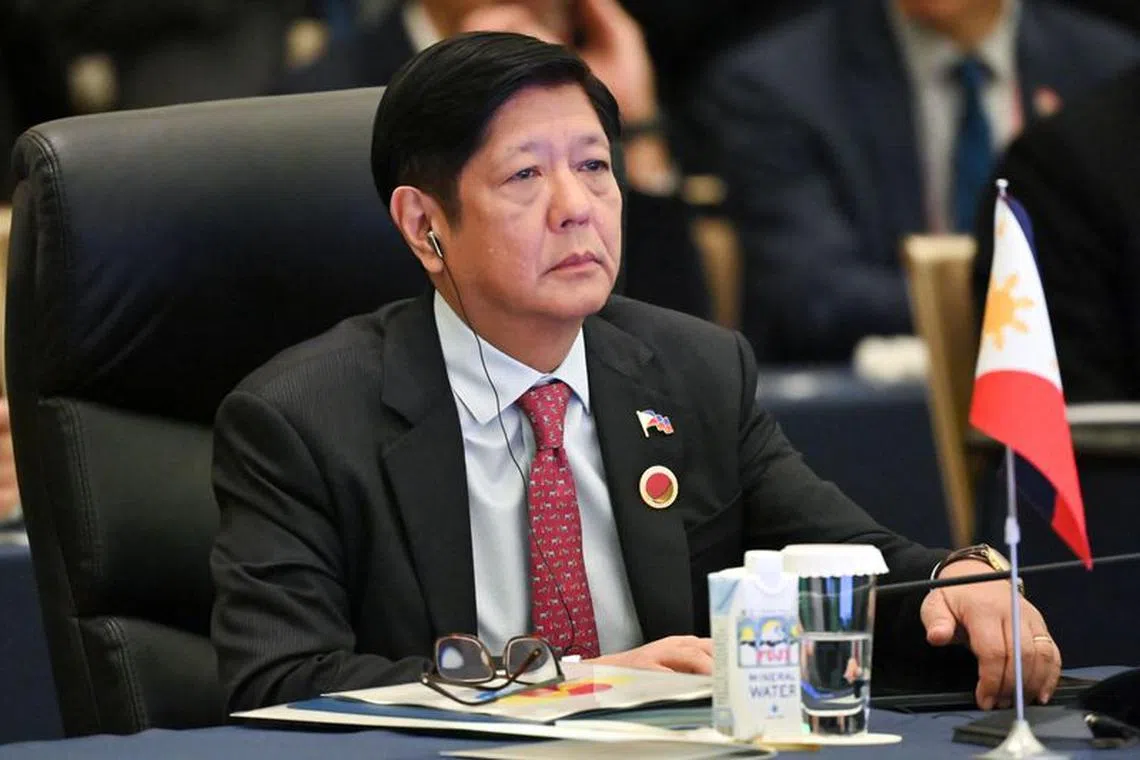Philippine President Marcos says diplomatic efforts with China heading ‘in poor direction’
Sign up now: Get insights on Asia's fast-moving developments

Mr Ferdinand Marcos Jr said traditional diplomatic efforts were being disregarded by China in a recent interview with the Japanese media.
PHOTO: REUTERS
Follow topic:
MANILA - Philippine President Ferdinand Marcos Jr said a “paradigm shift” was needed in how his country approaches the South China Sea issue
Mr Marcos, in an interview with the Japanese media on Dec 16, parts of which were shared with the Philippine media on Dec 18, said traditional diplomatic efforts were being disregarded by China, according to a presidential palace release.
“To this point, we have resorted to traditional methods of diplomacy... we have been doing this for many years now, (but) with very little progress,” said Mr Marcos, who was in Japan for Tokyo’s commemorative summit with Asean.
“We have to come up with a paradigm shift,” he said of the countries that feel “they have an involvement in this situation”, while reiterating that the Philippines wants to avoid violent conflict.
He added that his government will continue talking to its partners and come up with a joint position stating their responsibilities as far as the West Philippine Sea is concerned.
The Philippines refers to the part of the South China Sea within its exclusive economic zone as the West Philippine Sea.
Manila and Beijing traded accusations over a collision of their vessels near a disputed shoal in the South China Sea on Dec 10 as tensions over claims in the vital waterway escalate.
China’s Foreign Ministry said the recent incidents were “entirely caused” by the Philippines, but that maritime disputes do not depict the “whole story” of both nations’ relations.
Ministry spokesman Wang Wenbin said at a regular news briefing on Dec 19 that China is willing to properly manage differences through dialogue and consultation. “We will not close the door to dialogue and contact with the Philippines,” he said when asked about Mr Marcos’ comments.
In addition to the Philippines, Asean members Brunei, Malaysia and Vietnam have overlapping claims with China in parts of the South China Sea, a conduit for more than US$3 trillion (S$4 trillion) of annual ship-borne commerce.
The Permanent Court of Arbitration in 2016 said China’s claims had no legal basis, a ruling the United States supports but Beijing rejects.
There was no immediate comment from the Chinese Embassy in Manila. REUTERS

